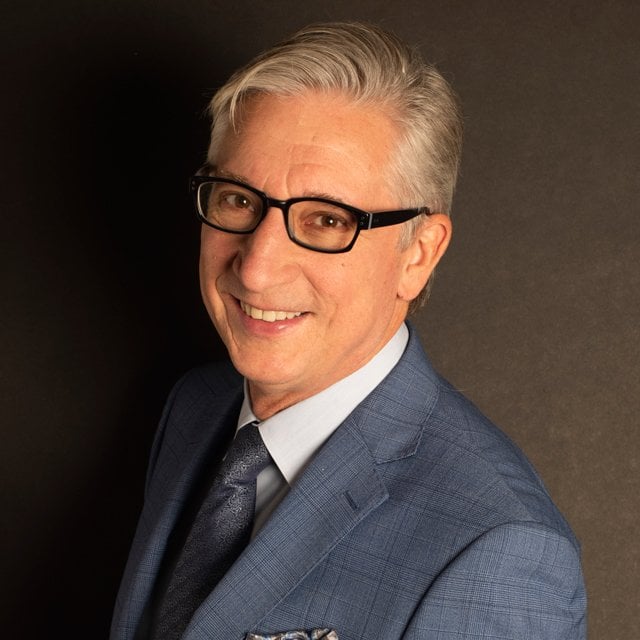Bob Pisani: How to Make Better Market Predictions

Bob Pisani, CNBC’s senior markets correspondent who reports from the floor of the New York Stock Exchange, thinks Wall Street punditry is “mostly baloney.” That includes predictions from economists and the Federal Reserve, he tells ThinkAdvisor in an interview.
But “you can get better at making forecasts,” he argues. “It’s not so much whether you know more; it’s more about having an open-minded attitude.”
Pisani’s new book is “Shut Up & Keep Talking: Lessons on Life and Investing from the Floor of the New York Stock Exchange” (Harriman House-October 2022).
In memoir style, the journalist, 65, explores financial issues in a tome laced with anecdotes about a variety of prominent people, from Fidel Castro to Aretha Franklin, whom he met on the job.
About the challenges of predicting the future, he writes: “It’s critical for anyone seeking advice to understand the problems with making predictions … This is important when making decisions on investing. The first problem is that predictions are riddled with biases and noise that limit their quality.”
In the interview, he speaks candidly about the worst investing mistake he has ever made and how it turned him into a deep believer in behavioral economics, which focuses on the often-irrational component of investing.
Then he details the investments in his portfolio today and the biggest change he’s made in the last 10 years.
Pisani came to CNBC in 1990 specializing in real estate and corporate management. In 1997, he began covering the stock market full time from the floor of the Exchange.
In our conversation, he discusses what he calls “the final blow to the profitability of the brokerage industry” and what he looks for on the screens he runs daily.
ThinkAdvisor held an interview with Pisani on Nov. 15. He was speaking from his NYSE office.
The favorite part of his job turns out to be watching initial public offerings.
“You’re watching people get rich,” he says. “This is capitalism at work.”
Here are excerpts from our interview:
THINKADVISOR: Wall Street pundits’ predictions — like where the market will be in a month or a decade — is “mostly baloney,” you write. Please elaborate.
BOB PISANI: Most people are terrible at predicting the future. That’s true of professional stock pickers too.
Economists are really bad also. They have a terrible track record of predicting the economy, and the Federal Reserve has a terrible record of predicting the U.S. GDP a year [ahead].
Why is it so hard to predict the future?
There are two basic problems. The first is that predictions are riddled with all sorts of mental and emotional biases that limit the quality of the predictions.
For example, confirmation bias, when people tend to select information that confirms the viewpoints they already have and ignore the stuff that can contradict the information that’s out there.
What’s the second problem?
Lack of complete information. There are unpredictable events that affect outcomes, such as shocks to the economy, [high] inflation, or a rise in interest rates, or a war or a cyberattack. Then there are black swan events, like COVID.
So when you combine the biases that people have with the unpredictability of the future, it’s really difficult to [forecast] the future accurately.
But “Wall Street refuses to acknowledge that stock forecasts don’t work because there’s too much money in forecasting,” you write. Please explain.
That’s true of the forecasting business in general. The world is full of punditry.
However, you actually can get better at making forecasts. It’s not so much whether you know more; it’s more about having an open-minded attitude.
Philip Tetlock, the Wharton professor who [co-wrote] “Superforecasting: The Art and Science of Prediction,” has the Good Judgment project, in which he’s trying to improve forecasting.
He’s been able to [achieve] statistically better forecasting by employing better mental models.
What’s the best advice about the stock market you’ve ever received?
In the late ’90s and mid-2000s, when I asked traders, “What’s in your head all the time”, the most common thing I kept hearing was “limiting losses.”
They said time and time again that you can make money in this business, but you can lose it even faster — so managing losses is more important than managing gains.
They told me: You can’t fall in love with stocks. Understand what your profits are — don’t be afraid to take some. And if a stock is down 10% from when you bought it, don’t hope it’s going to come back.
What’s been your biggest investing mistake?
It’s very obvious that I’ve made a number of them. Becoming more aware of them is really the key [to reducing mistakes].
What was the worst blunder?
When I joined CNBC, I opened a 401(k) [account] and immediately began buying General Electric stock. GE owned NBC, and I was enamored with GE’s CEO, Jack Welch. In the 1990s, he was like a corporate god.
So by 1999, 50% of my 401(k) was in GE stock. Anyone would tell you that’s a mistake because it’s too much concentration in one stock. You should never own more than 10% of your own company’s stock. Fifty percent is ridiculous.
Why did you buy so much GE?
I exhibited the behavioral bias of overconfidence — in this case, overconfidence in Jack Welch. I didn’t want to believe that he could be wrong. I knew about behavioral biases back then, but I did that anyhow.
And then I held onto the stock too long. Traders — people like [Bear Stearns chair Alan] “Ace” Greenberg — had told me not to do that. But I did. [Pisani sold his “entire” GE position in mid-2008. “I’m sure it was sold at a loss,” he writes.]



